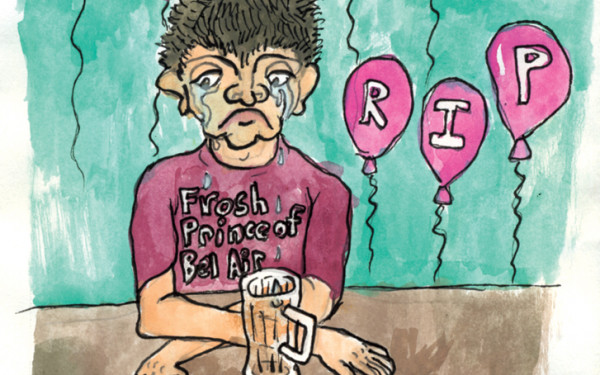Editorial: ASFA Mishandled Harassment Claims Against Former President Jonathan Roy
ASFA Is at the Centre of a Quebec’s Human Rights Commission Complaint, Again
In light of the allegations of sexual misconduct against the Arts and Science Federation of Associations’ former president, a student is filing a complaint against ASFA to the Quebec’s Human Rights Commission with the help of the Centre for Research-Action on Race Relations.
ASFA’s failure to address the sexual misconduct allegations against ASFA’s former president, Jonathan Roy has brought ASFA to the commission for the second time since 2015.
In the case of 2015, a former ASFA executive, with the pseudonym Mei-Ling to protect her identity, reached a settlement with the association after she discovered two white, male colleagues used sexual and racial slurs when referring to her in a private Facebook chat. In addition to the settlement, ASFA also agreed to creating a task force to examine instances of gender, sexual and racial discrimination.
CRARR is standing up against ASFA on Harris Turpin’s behalf for their alleged failure to properly address his sexual misconduct allegations against Roy. They’re also asking for an effective survivor-centred policy and a permanent task force on sexism, racism and oppression.
ASFA dropped their previous sexual misconduct policy in February due to criticisms there was a lack of empathy towards survivor of sexual misconduct who needed to reach an agreement with the accused. Currently both parties have to agree to a mediation process which aims to satisfy needs of the complainant and the accused. In practice, that can often mean the complainant’s needs being compromised for the accused’s.
ASFA announced they will opt to follow the Concordia Student Union’s sexual misconduct policy, but the CSU doesn’t even have one (though one is in the works).
The task force ASFA agreed to create back in 2015, along with a survivor-centred sexual misconduct policy, should have prevented the allegations against Jonathan Roy and the subsequent alleged mishandling of these allegations.
To give credit where it is due, ASFA passed a motion to make consent and sensitivity training mandatory for all leadership positions following Mei-Ling’s allegations in 2015. But beyond that, ASFA has demonstrated little commitment to making their organisation safer for its members.
Turpin never received a formal apology from Roy, only a link to a statement published by ASFA on Facebook regarding the situation, which he was forwarded through email by a third party.
This is the second time ASFA is found at the forefront of the QHRCC due to sexual misconduct. According to CRARR, it’s also the first complaint at the commission involving sexual harassment on campus between two people of the same-sex.
Firsts are always important. They have the potential to set the tone of every subsequent related situation.
We at The Link support survivors of sexual violence and stand unequivocally with those who come forward with allegations of discrimination. The inconsistency of ASFA’s apology and their promise to represent survivors of sexual assault proves how limited their resources can be in terms of following up with victims of sexual violence.
ASFA needs to come up with a concrete sexual misconduct policy for the health and safety of Concordia students.
We hope to see ASFA’s actions reflect a desire to learn from the allegations against Jonathan Roy, and we expect a concise plan of action following the accusations against ASFA.





_600_375_90_s_c1.jpg)

_600_375_90_s_c1.jpg)